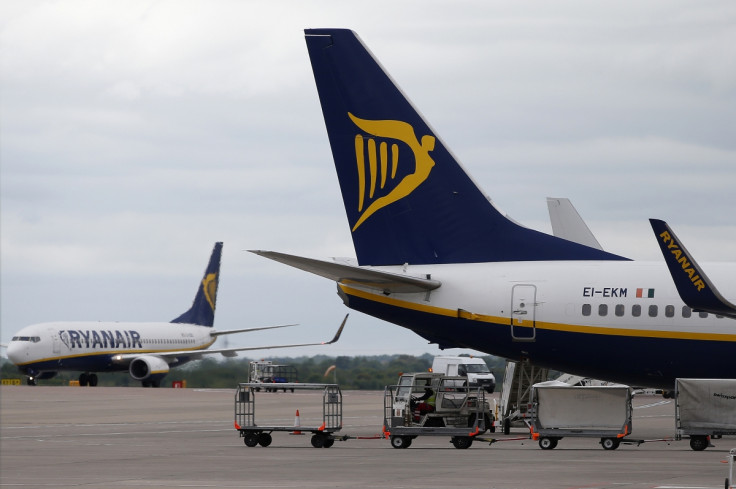Ryanair fares to fall 7% after airline's profit and forecast miss estimates

Ryanair said it expects its fares to decline 7% this year, as the budget airline seeks to fight competition by cutting prices.
Group chief executive Michael O'Leary warned the airline sector was bracing itself for a "fare war", as airlines pass on the savings deriving from cheap oil prices on to their passengers. However, O'Leary sounded upbeat over his company's outlook. "If there is a fare war in Europe, then Ryanair will be the winner," he said.
Despite the lower fares, Ryanair said it expects net income for the current financial year to grow 13% to between €1.38bn (£1.07bn, $1.55bn) and €1.43bn, slightly lower than the €1.47bn analysts expected.
News of the price cuts came as the London-listed company posted a 43% year-on-year increase in adjusted net income – which strips out the exceptional gain related to Ryanair's recent investment in Aer Lingus – to €1.24bn in the 12 months to the end of March. The figure, however, fell short of analysts' expectations for a €1.3bn figure.
Revenue also came in slightly below analysts' forecast, rising 16% from the corresponding period in 2015 to €6.54bn compared with the expected €6.55bn figure. The Irish carrier said revenue and profit have suffered from the terrorist attacks in Brussels in March, which caused severe disruptions to a number of airlines that were forced to cancel scheduled services while the airport in the Belgian capital was closed.
Ryanair also warned that strikes by airport staff in Italy, Greece, Belgium and France and the absence of an Easter holiday in the period will have a negative impact on first-quarter results. It added the weakness in the pound, largely driven by the uncertainty surrounding Britain's European Union referendum, will weigh on its performances for the first three months of the financial year.
The group has been one of the strongest and most vocal supporter of the "Remain" campaign and reiterated its stance in a statement on Monday (23 May). "If the UK leaves the EU then this, we believe, will damage economic growth and consumer confidence in the UK for the next two to three years as they begin to negotiate their exit from the EU and re-entry to the single market in very uncertain market conditions," it said.
© Copyright IBTimes 2025. All rights reserved.






















